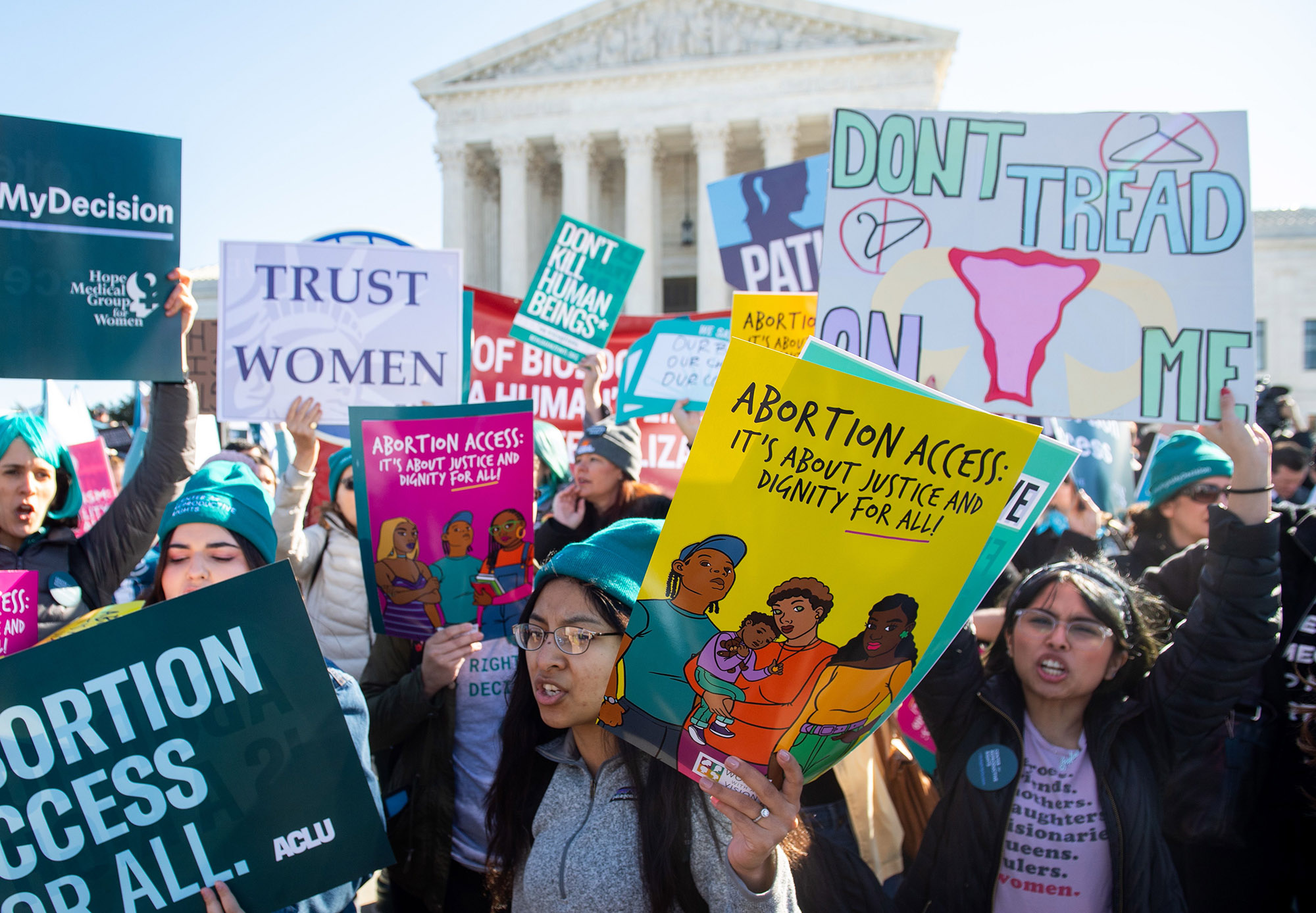
Supreme Court to hear first Roe v. Wade challenge from Mississippi in December
Dobbs v. Jackson Women’s Health Organization is challenging the Court’s precedent prohibiting states from banning abortions before viability.
The Supreme Court has scheduled arguments for the highly-anticipated Mississippi abortion case. The case, which will examine the legality of the state’s ban on most abortions after 15 weeks of pregnancy, will be heard on Dec. 1.
Mississippi’s abortion restriction is the first to reach the court from a wave of state laws meant to challenge the 1973 Roe v. Wade decision, which ruled that access to abortion was a constitutional right.
The Supreme Court will hear arguments on Dec. 1 in Mississippi's bid to have the landmark Roe v. Wade decision guaranteeing a woman's right to an abortion overturned. It's the biggest test of abortion rights in decades. https://t.co/yCiXJR7MWS
— The Associated Press (@AP) September 20, 2021
The case, Dobbs v. Jackson Women’s Health Organization, seeks to challenge the Supreme Court’s precedent prohibiting states from banning abortions prior to a fetus becoming viable, or capable of surviving outside of the womb.
It’s centered on the 2018 law in Mississippi that bans most abortions after 15 weeks, a point that is significantly earlier than the general fetal viability standard of around 22 weeks.
The 5th U.S Circuit Court of Appeals blocked the law, declaring that it directly contradicts the precedent set by another crucial abortion ruling of 1992, Casey v. Planned Parenthood. That decision allowed states to implement pre-viability abortion restrictions that did not create an “undue burden” on abortion access.
A flood of abortion-related Supreme Court decisions in recent years have reaffirmed those protections, but this case will be heard by a high court that has grew increasingly conservative under former President Donald Trump, who appointed three justices to the nine-seat bench.
Last month, all of Trump’s appointees, Neil Gorsuch, Brett Kavanaugh and Amy Coney Barrett, voted against a request to put an end to the highly restrictive abortion law in Texas from taking effect. The 5-4 majority ruled without hearing oral arguments and declined to block the law on procedural grounds.
BREAKING: The Supreme Court will hear oral arguments in Dobbs v. Jackson Women’s Health Organization on December 1. This is the case that directly asks #SCOTUS to overturn Roe—and it’s the first abortion case to be heard since Amy Coney Barrett replaced RBG on the bench.
— NARAL (@NARAL) September 20, 2021
With six conservatives now on the bench, advocates fear that the threats to reproductive freedom are higher than they have been in years.
With six conservatives now occupying the bench, advocates say the threats to reproductive rights are greater than they have been in years. According to a report released by the Guttmacher Institute in July, state legislatures have passed at least 90 laws restricting the procedure so far in 2021, which is more than any previous year.
RELATED CONTENT
President Joe Biden criticized the Supreme Court after their decision to permit Texas’ abortion law to go into effect.
On Monday, Sept. 20, his administration cited that law as it officially supported the Women’s Health Protection Act, a bill that would protection abortion rights across the nation.
INBOX: The White House "strongly supports House passage" of the Women’s Health Protection Act of 2021. "In the wake of Texas’ unprecedented attack, it has never been more important to codify [Roe] and to strengthen health care access for all women, regardless of where they live."
— Geoff Bennett (@GeoffRBennett) September 20, 2021
“In the wake of Texas’ unprecedented attack, it has never been more important to codify this constitutional right and to strengthen health care access for all women, regardless of where they live,” Biden’s Office of Management and Budget said in a statement of administration policy.
Acting Solicitor General Brian H. Fletcher said in new friend-of-the-court briefs that the justices should reject a direct challenge to the landmark opinion.
Fletcher said that if Roe v. Wade is overturned, it would “harm women (and their partners) who have organized intimate relationships and made choice that define their views of themselves and their place in society, in reliance on the availability of abortion in the event that contraception should fail.”
Fletcher also warned that it would seriously undermine women’s autonomy and have significant impacts on young women, women of color and those living in poverty.











LEAVE A COMMENT:
Join the discussion! Leave a comment.